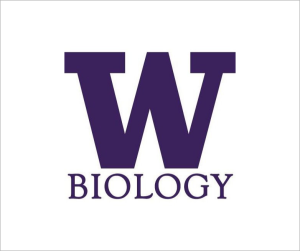Earlier this year Pat Lu-Irving of the Olmstead lab and Matt McElroy of the Leaché lab crossed paths in the possible 51st State while conducting very different fieldwork. Here’s Pat-the-botanist’s take on her encounter with the herpetology crew and an overview of their work in her words. Look for Part II of the Puerto Rican Switcheroo, soon! ~BP
Here’s Pat:
It is Monday evening in late August. I meet Matt McElroy at a roadside cantina outside the town of Adjuntas in Puerto Rico’s Cordillera Central (central mountain range). We greet each other enthusiastically in the crowded dirt parking lot, beneath flapping signs advertising local beer; it is nice to see a familiar face – I have been in the field for a week and a half, having traveled through the threat of tropical storm Isaac from Miami and driven around Puerto Rico for a few days. Matt has been doing fieldwork in Puerto Rico for the last three weeks.
Adjuntas has a reputation for experiencing some of the coldest weather in Puerto Rico; at an elevation of around 1500 ft, the summer evening has a noticeable chill. Matt has been collecting lizards here in the company of a group of ecophysiologists led by Paul Hertz of Barnard College. They are based out of a cabin in the hills above the town, and have been doing their work in the state forest of Guilarte. Mount Guilarte is the highest peak in the municipality of Adjuntas, lushly verdant, reaching just under 4000 ft in height.
Paul’s group kindly invite me to stay the night in a spare bunk in their cabin, and, after dinner, I follow their dark blue van and Matt’s small white Yaris up a tangle of steep and winding one-lane mountain roads. When we finally arrive, night has fallen, and the coqui frogs are raising an almost deafening chorus. The occasional firefly traces a blue glimmer under the dark eaves of the forest. We unpack our vehicles, and get to work.
Both Matt and Paul are working on anoles, species of small neotropical lizards belonging to the genus Anolis. Both are interested in exploring the adaptation of the lizards to the different climatic environments presented by lowland versus high-elevation habitats (Puerto Rican anoles are found in both). However, while Paul’s group has been collecting body temperature data for different lizards found in the mountains at different times of the day, Matt has been collecting the lizards themselves. He photographs them, quantifies the color of their dewlaps, and preserves them, together with certain DNA-rich tissues, for transport back to the Burke Museum. The specimens will serve as vouchers for identification and the measurement of morphological characteristics, while the DNA will be the basis of an investigation into the historical pattern of shifts and genetic exchange between lowland and highland lizards.
I finish pressing the plants I collected that day, and watch Matt working on his specimen preparation. The bulk of my work can be done on-site, involving only a press, some tools, and a notebook in the way of gear; Matt must do all of his processing at camp. It is 10 pm, and he has bags of lizards, crates of equipment and supplies, and hours of work still to do. I ask if he wants help, expecting him to politely decline. To my surprise, he takes me up on my offer, and gives me a ten minute crash course in the somewhat grisly art of animal specimen preparation. We finish up at around 1 am, and go to bed steeped in the sharp odor of formalin. A few hours later, we groggily pack up and part ways – me to continue collecting in the Dominican Republic, and Matt to stay a few more days in Puerto Rico before returning to Seattle.
The next time I see Matt, it is early October. We meet at our weekly phylogenetics seminar, as the Fall quarter gets started at UW. We are both clean and well-groomed once again, in contrast with our work-stained field clothes of the month before. Matt grins at me, and tells me that he has unpacked the lizards I hesitantly helped to preserve a month ago.
Apparently, I have done a terrible job, and should stick to botany.





